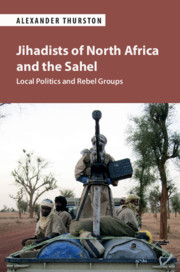4 - Central Mali
The Possibilities and Limits of Incorporation
Published online by Cambridge University Press: 15 October 2020
Summary
This chapter examines the fraught relationship between jihadism in central Mali and an ethnic group, the Peul, that has simultaneously furnished numerous recruits to the jihadists and become a target of collective punishment by the state. The jihadists in central Mali and those in northern Mali, beginning formally in 2017 but informally several years earlier, were part of the same organization. Yet the political approach taken by jihadists in the center differed substantially from that taken by their peers in the north; in particular, jihadists in the center cultivated a starker “ethnicizing” discourse but were simultaneously less interested than their northern counterparts in drawing local politicians into their coalition. The chapter analyzes how Peul politicians have responded to the jihadist leader Amadou Kouffa, highlighting ways in which shared religion and ethnicity provided common ground for communication but ultimately not for compromise, let alone coalition-building. The chapter argues that central Mali represents a case of jihadist coalition-building that, by its implicitly anti-elite stance, offers substantial possibilities for grassroots recruitment while simultaneously foreclosing the possibility of absorbing some of the most important political blocs on the scene.
Keywords
- Type
- Chapter
- Information
- Jihadists of North Africa and the SahelLocal Politics and Rebel Groups, pp. 147 - 191Publisher: Cambridge University PressPrint publication year: 2020
- 1
- Cited by

